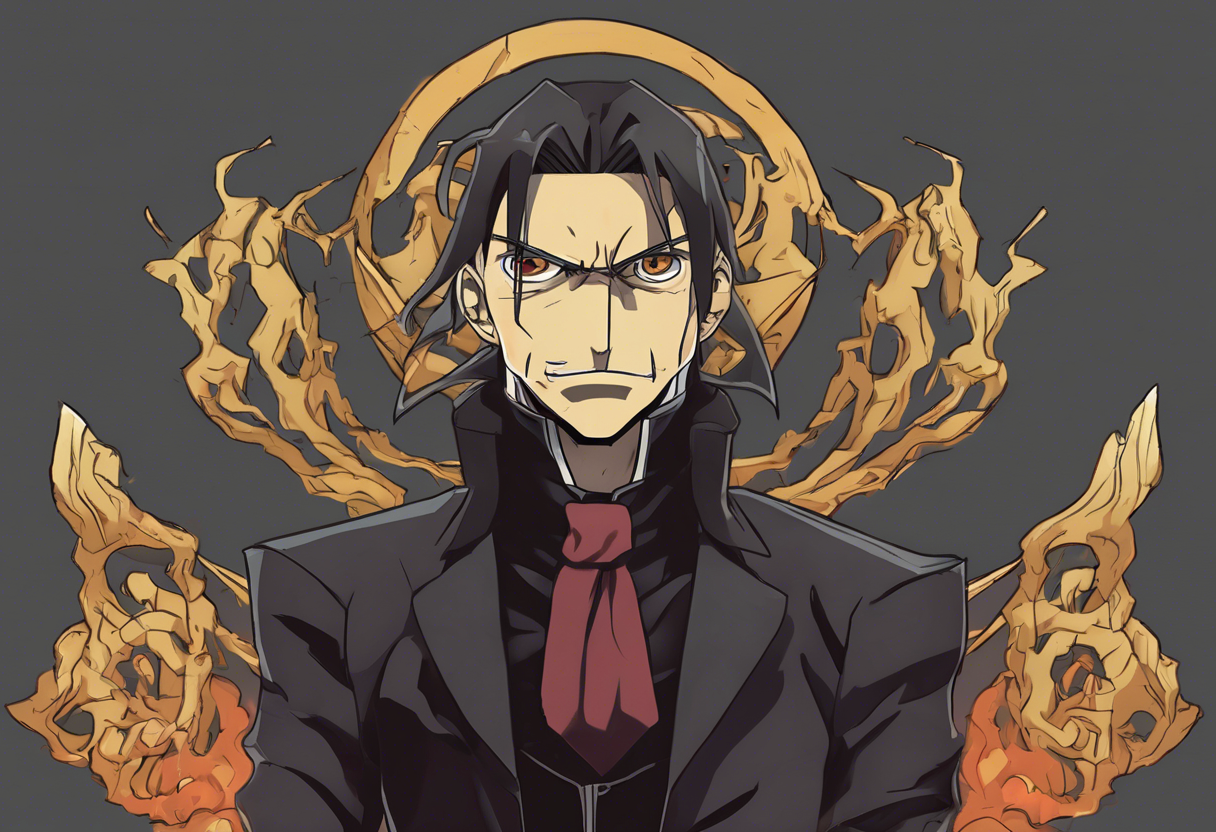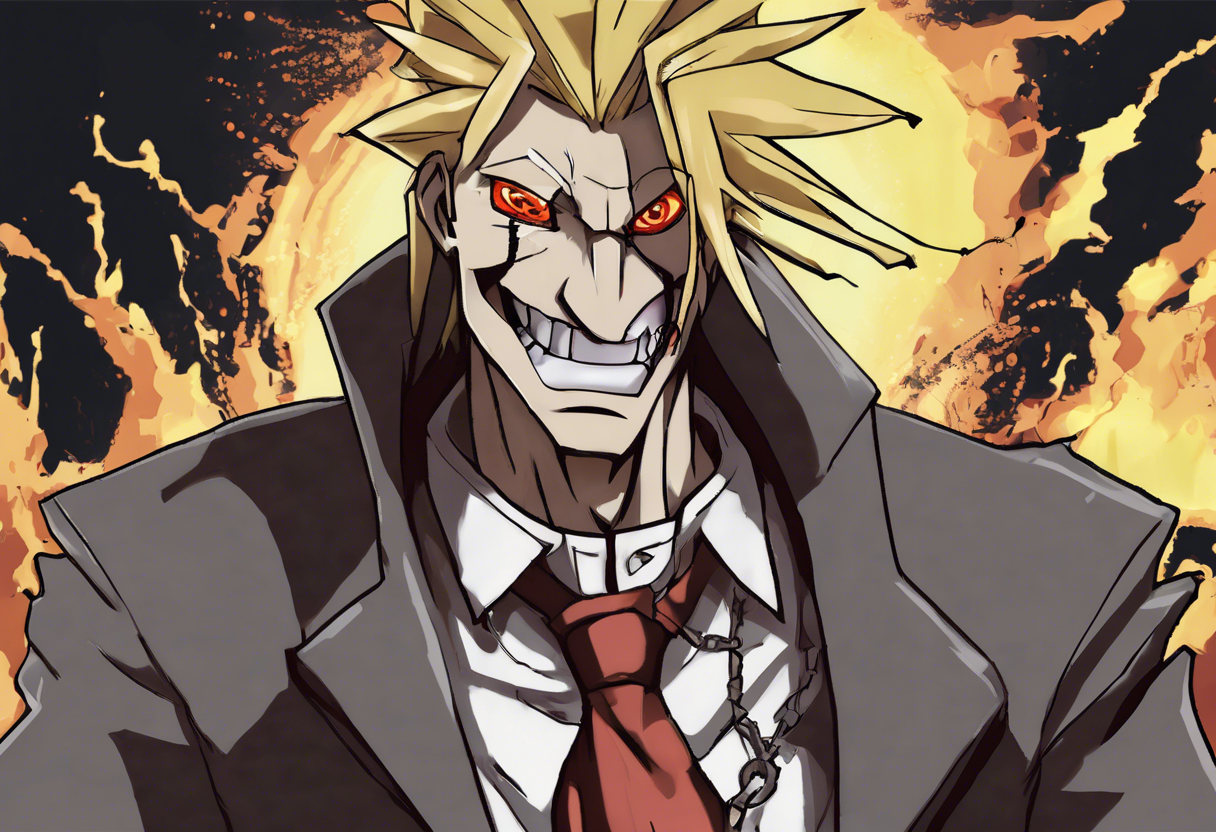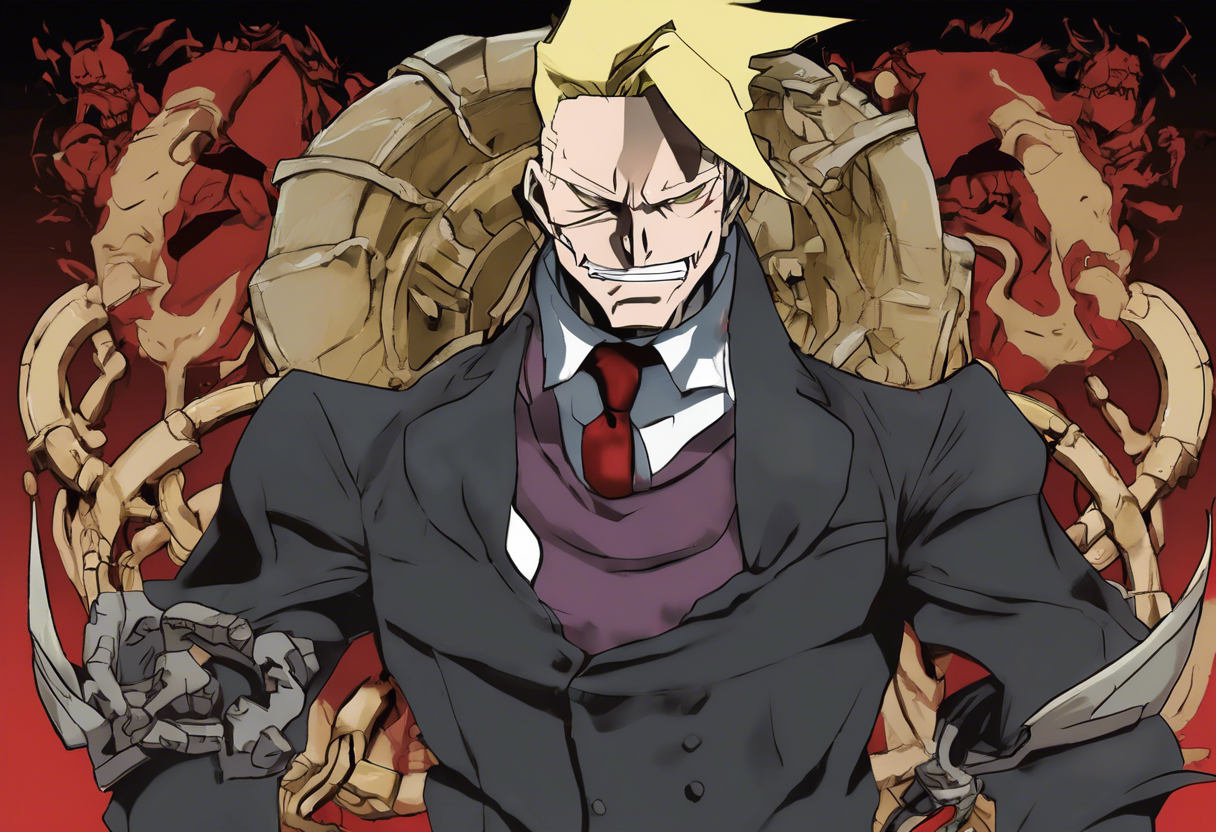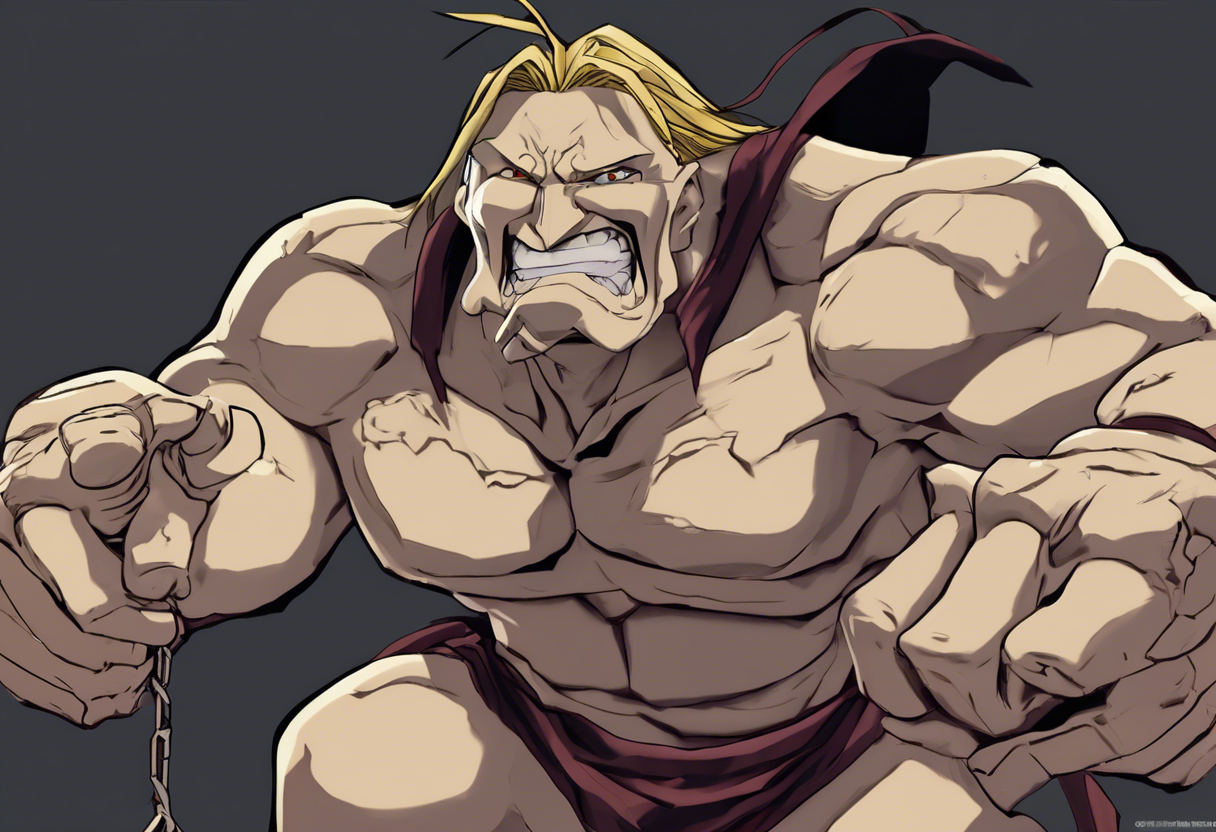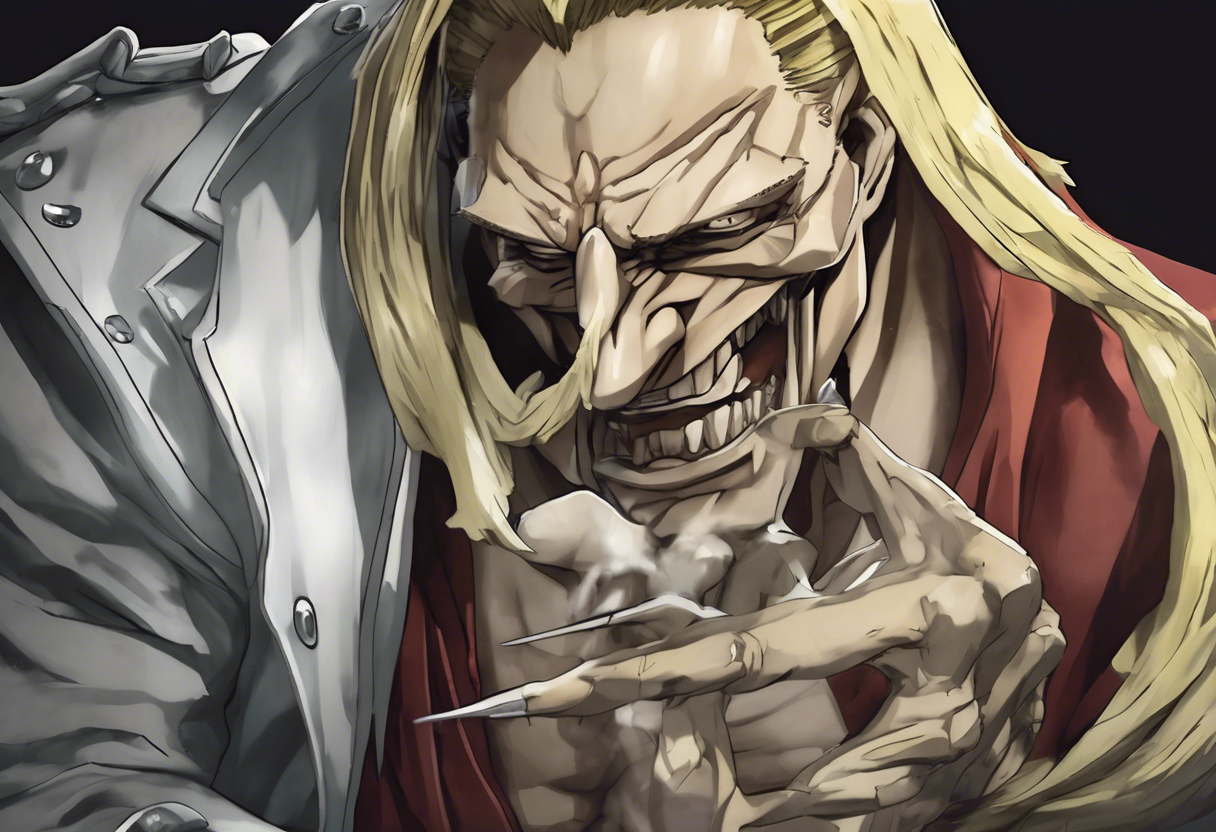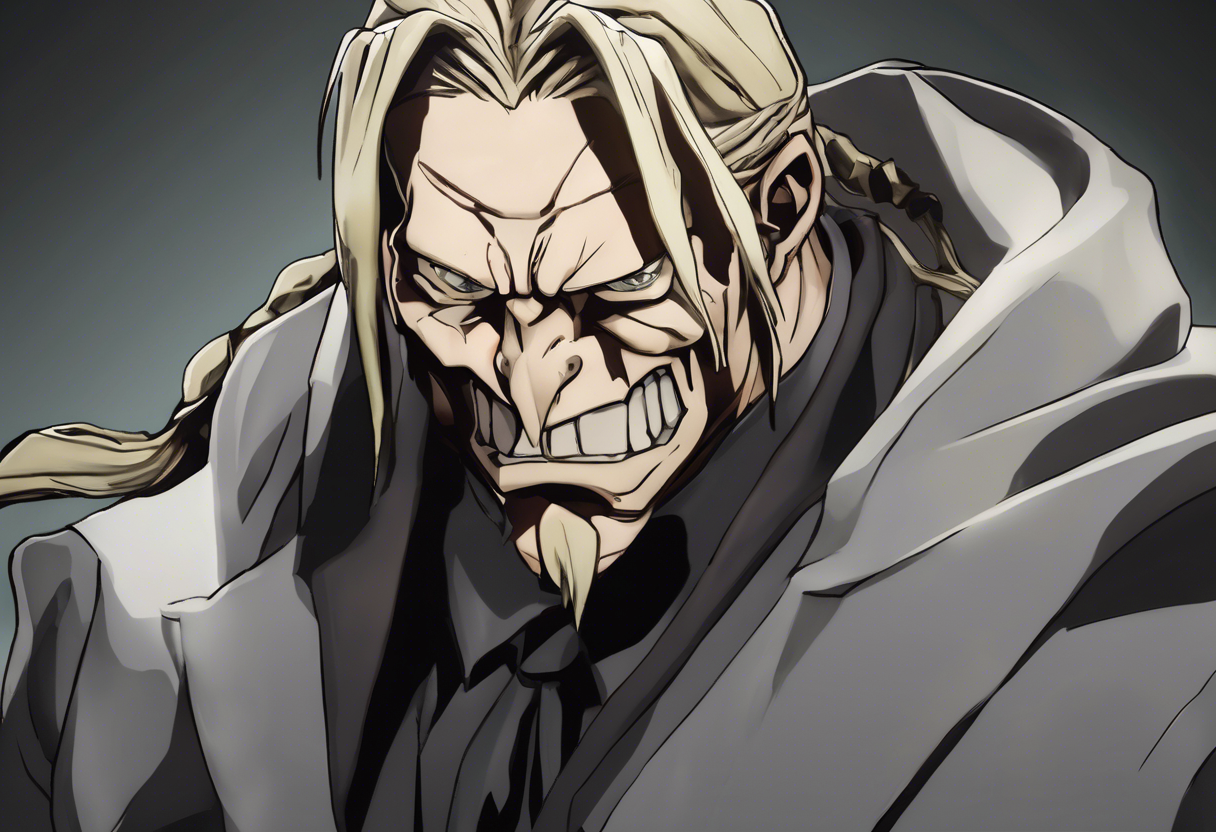Contents
Introduction
Greed, also known as the "Ultimate Shield," is a complex and intriguing character in the anime series Fullmetal Alchemist: Brotherhood. Created by Hiromu Arakawa, Greed is one of the seven Homunculi, beings born from the sins of humanity and imbued with supernatural powers. Greed’s defining trait is his insatiable desire for wealth, power, and possessions, which sets him apart from his fellow Homunculi and often puts him at odds with their creator, Father.
Greed’s backstory is marked by his rebellious nature and desire for independence. Unlike his siblings, who are content with serving Father, Greed craves autonomy and the ability to accumulate wealth and power on his own terms. This desire leads him to break away from the other Homunculi and form his own gang, known as the Devil’s Nest, where he becomes the leader of a group of chimeras and other outcasts [1][3].
In the narrative of Fullmetal Alchemist: Brotherhood, Greed plays a significant role as a character who undergoes substantial development. Initially portrayed as a villain, he eventually becomes an ally to the protagonists, Edward and Alphonse Elric, and contributes crucially to their battle against Father. This transformation highlights Greed’s complexity and adds depth to the story.
Role in the Story
Greed’s storyline in Fullmetal Alchemist: Brotherhood is multifaceted and dynamic. He is first introduced as the leader of the Devil’s Nest, a gang of chimeras and thugs, where he seeks to accumulate wealth and power. Greed’s gang kidnaps Alphonse Elric in an attempt to extract the secret of immortality from him and his brother Edward. However, this plan is foiled by the State Military, led by King Bradley (also known as Wrath), who repeatedly kills Greed and eventually subdues him. Greed is then taken back to Father’s lair, where he refuses to rejoin the other Homunculi and is subsequently melted down to his Philosopher’s Stone form [1][3].
Greed is later resurrected when Prince Ling Yao, in his quest for immortality, accepts the Philosopher’s Stone that contains Greed’s soul. Initially, the new Greed obeys Father’s will, but as he regains his memories, he rebels once again. This time, he forms a bond with Ling and eventually allies with Edward and the other protagonists. Greed’s decision to side with the Elrics is driven by his desire for friendship and a sense of belonging, which he realizes is more valuable than any material possession [1][3].
One of the pivotal moments in Greed’s storyline is his ultimate sacrifice during the final battle against Father. To protect his friends and aid in Father’s defeat, Greed allows himself to be absorbed by Father, damaging Father’s body in the process. This act of selflessness underscores Greed’s transformation from a selfish villain to a heroic character who values relationships over personal gain [1][3].
Character Analysis
Greed’s personality is a blend of selfishness, opportunism, and a deep-seated desire for connection. Initially, he is portrayed as a character consumed by his own greed, seeking to accumulate wealth and power at any cost. However, as the series progresses, his interactions with Ling and the Elric brothers reveal a more nuanced character. Greed’s desire for possessions and power is not just about material wealth but also about the sense of control and respect it brings him.
Despite his tough exterior, Greed has a "heart of gold." He genuinely cares for his subordinates and allies, often going to great lengths to protect them. This is evident in his relationships with the chimeras of the Devil’s Nest and later with Ling, whom he comes to regard as a friend and family member [1][3].
Greed’s strengths include his cunning and adaptability. He is a skilled strategist and fighter, able to use his Ultimate Shield ability to rearrange the carbon in his body into diamond-hard armor. However, his greatest strength lies in his ability to form meaningful connections with others, which ultimately leads to his redemption.
One of Greed’s significant flaws is his initial inability to see beyond his own desires. His obsession with wealth and power often blinds him to the value of relationships and the consequences of his actions. However, through his experiences and the influence of Ling and the Elrics, Greed undergoes significant character development, learning to prioritize friendship and loyalty over personal gain.
Themes and Symbolism
Greed embodies several key themes in Fullmetal Alchemist: Brotherhood, including the value of relationships, the dangers of unchecked ambition, and the concept of equivalent exchange. His character serves as a symbol of the human desire for connection and the importance of finding meaning beyond material possessions.
The theme of equivalent exchange, a central concept in the series, is particularly relevant to Greed’s character. Initially, he believes that accumulating wealth and power is the key to happiness, but he eventually learns that true fulfillment comes from the relationships he forms. This realization underscores the idea that one must give up something of equal value to gain something truly meaningful [4].
Greed also symbolizes the struggle between individual desire and collective well-being. His rebellion against Father and his eventual alliance with the protagonists highlight the tension between personal ambition and the greater good. Through Greed’s journey, the series shows that true strength and happiness come from balancing personal desires with a sense of responsibility and compassion for others.
Cultural Impact
Greed has had a significant cultural impact within the Fullmetal Alchemist fandom. He is a highly popular character, known for his complex personality and compelling storyline. In fanworks, Greed is often depicted in various relationships, particularly with Ling Yao, a pairing known as "Greelin" or "Greedling" [2].
The character’s influence extends beyond the fandom as well. Greed’s transformation from a villain to a hero has inspired discussions about character development and redemption in anime. His story serves as a model for how characters can evolve and grow, making him a beloved and memorable figure in anime history.
In adaptations and spin-offs, Greed’s character has been consistently well-received. In the 2003 anime series, his backstory is slightly different but still retains the core elements of his rebellious nature and desire for independence. The live-action adaptation also features Greed, maintaining his central role in the narrative [2].
Critical Reception
Critics and audiences have praised Greed for his complexity and depth. His character development is often cited as one of the highlights of the series, showcasing a nuanced exploration of human nature and the consequences of one’s actions.
Greed’s transformation from a selfish villain to a heroic character has been particularly praised. His sacrifice in the final battle against Father is seen as a poignant moment that underscores the themes of the series and adds emotional depth to the story [1][3].
However, some critics have noted that Greed’s initial portrayal as a one-dimensional villain can be off-putting. Yet, as the series progresses and his character is fleshed out, these criticisms are often mitigated by his compelling development and the depth he brings to the narrative.
Legacy
Greed’s enduring appeal lies in his relatable and humanized portrayal. His journey from a selfish Homunculus to a heroic character who values friendship and loyalty has inspired many fans and has become a benchmark for character development in anime.
In contemporary discussions, Greed’s character continues to be relevant. His story serves as a reminder of the importance of relationships and the need to balance personal desires with a sense of responsibility and compassion. This theme is particularly resonant in today’s society, where the value of connections and community is increasingly recognized.
Greed has also inspired other works and character archetypes. His complex personality and transformative storyline have influenced the creation of similar characters in other anime and manga series, making him a lasting figure in the world of anime.

